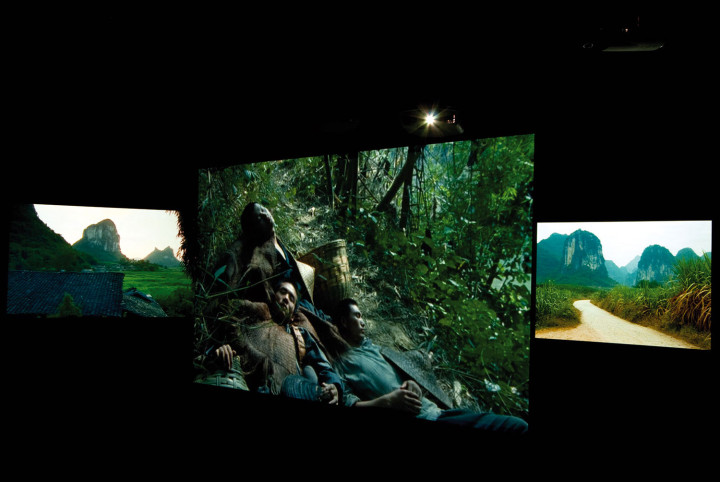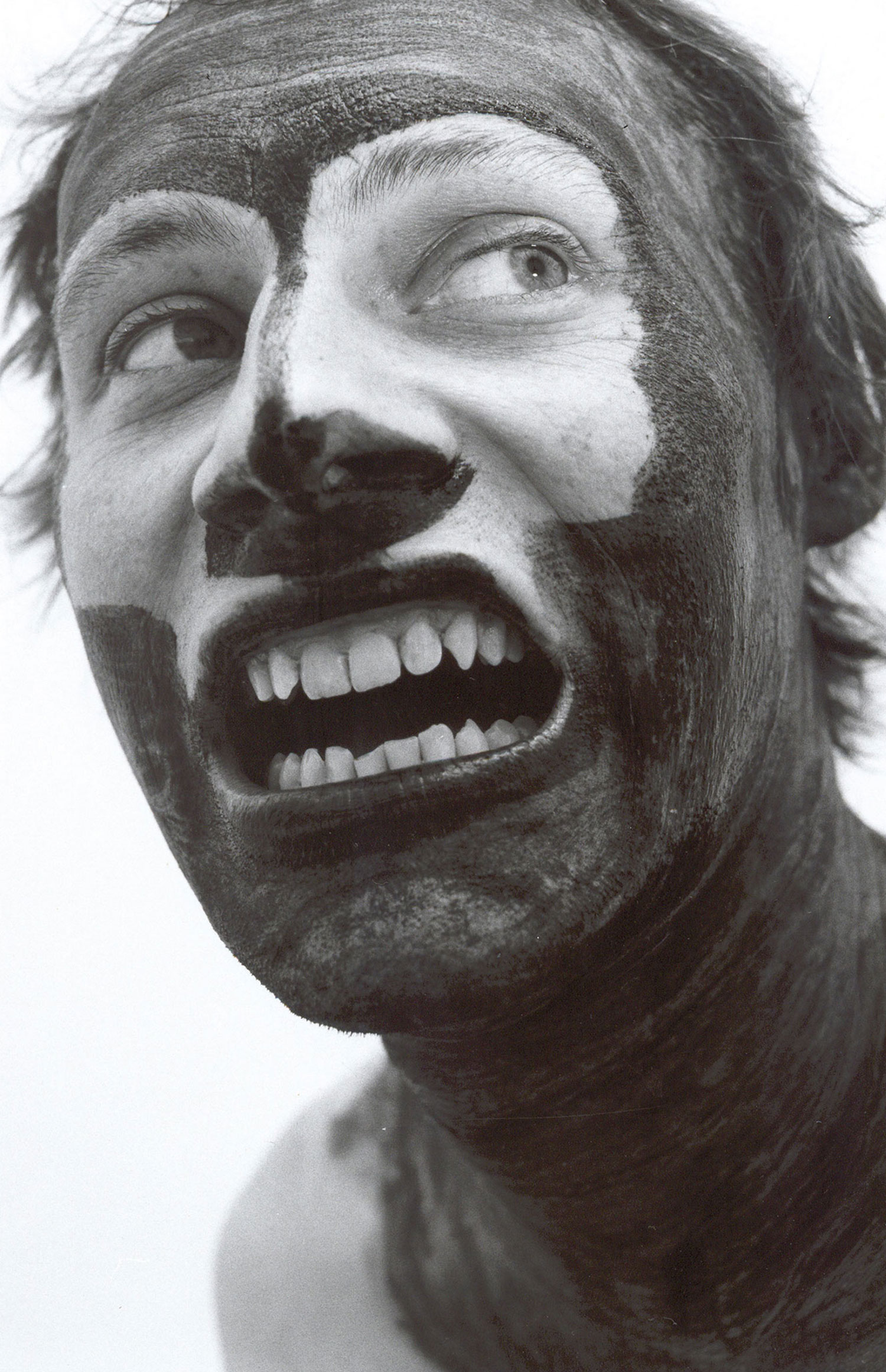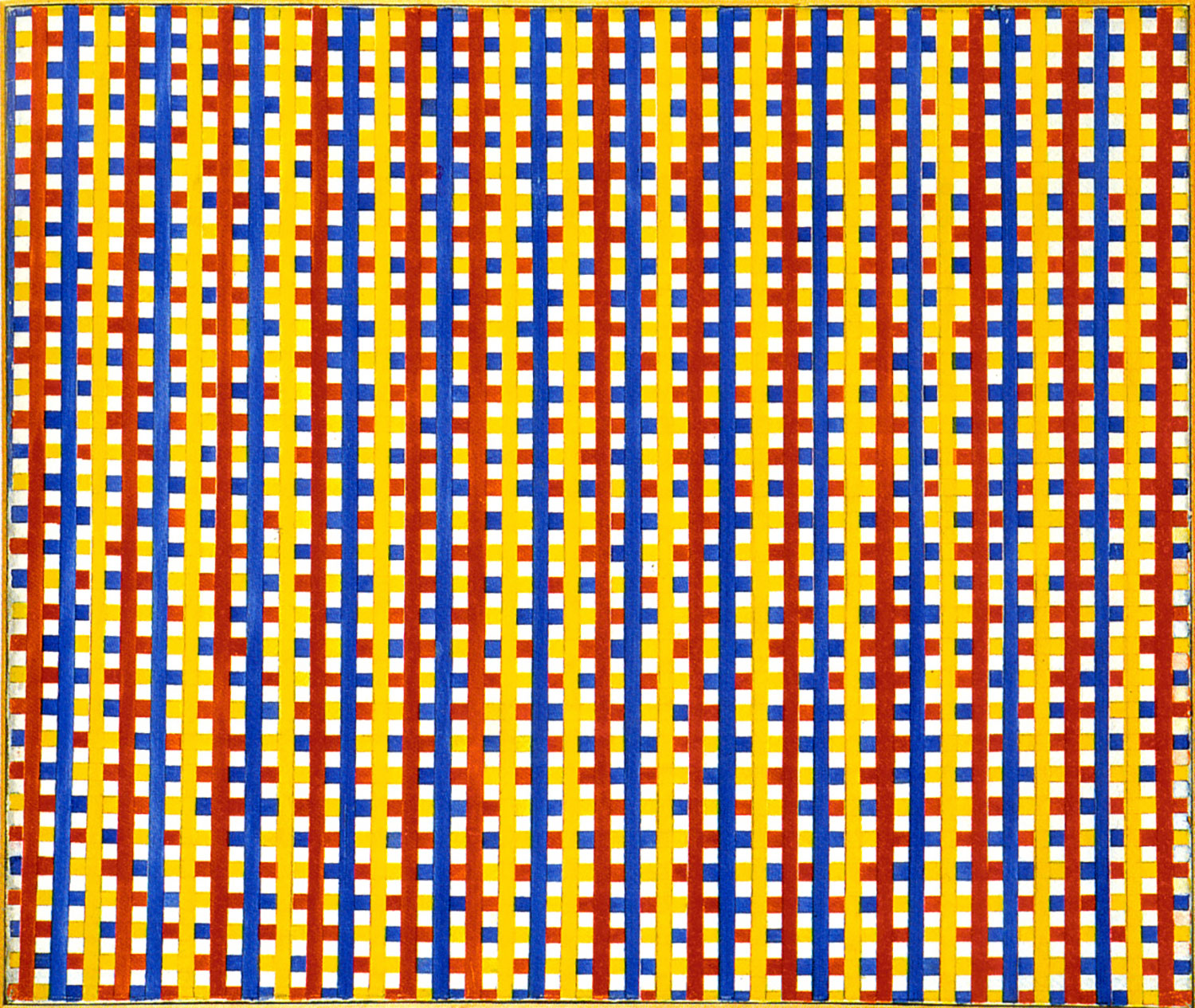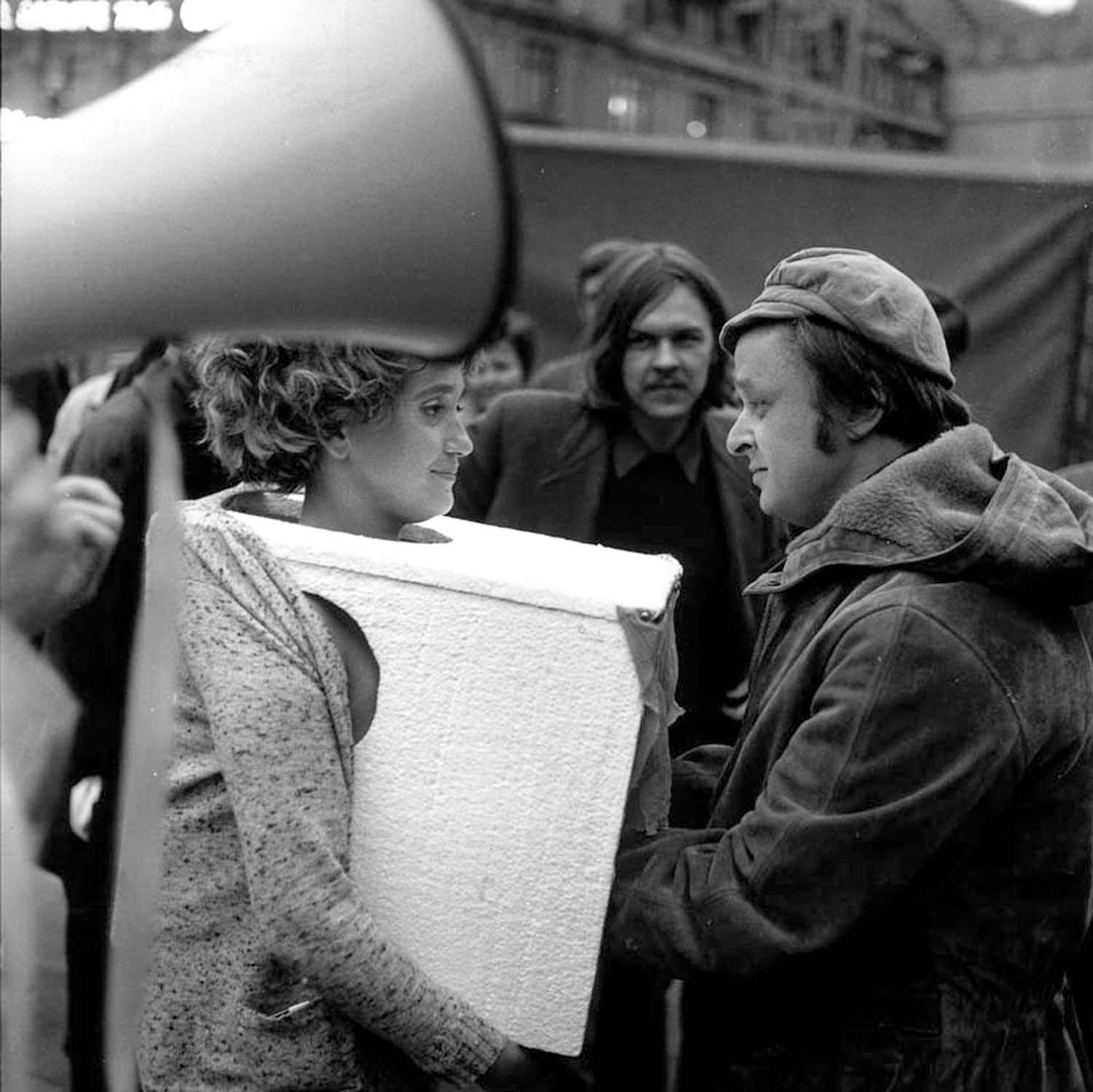
Ten Thousand Waves, which received its world premier in May 2010 at the Biennale of Sydney, is Isaac Julien’s most-ambitious production to date. For the film installation the artist deploys nine hanging transparent screens (on which the video images are visible from both sides) and 9.2 channel surround sound. The nine screens are arranged across a broad expanse, and at angles that preclude viewing all of them from any single vantage point. The focus of the artistic narrative moves about the three-dimensional installation continuously.
An homage to China’s history and tradition, Ten Thousand Waves was inspired by the 2004 Morecambe Bay tragedy, in northwest England, when twenty-three Chinese cockle-pickers died as the tide rose on the bay’s vast mudflats and washed them out to sea. Most of the victims were from the Fujian Province, and Julien incorporated the local legend of the protective goddess Mazu in the storyline, after traveling with his Chinese crew to remote mountain settings to capture the allegorical atmosphere of the goddess legend. The artist has recruited an all-star cast, among whom are Maggie Cheung, China’s foremost movie actress before her recent retirement; Zhao Tao, known for her spirited performances in Jia Zhangke’s films; and Chinese film and video artist Yang Fudong. He also invited Chinese poet Wang Ping to visit Morecambe Bay and to render her impressions of it through poems that shape Ten Thousand Waves, her verse honoring the souls of immigrants who died in pursuit of a better life, and her lines contributing central elements such as the film’s title and the phrase “Come home, soul,” which Mazu (Cheung) whispers poignantly.
Ten Thousand Waves opens with a view of Morecambe Bay shot from a police helicopter, which complements the film’s subsequent scenes shot in China from Mazu’s airborne vantage. Together with diverse takes on Wang’s verse, to increase the drama are shots of pounding waves coupled with shots of a calligrapher drawing the Chinese character for “wave.” The film bridges the world of fiction and reality with dramatic finesse.
A fan of Chinese cinema, Julien has included fond allusions to it. A stunt-woman portraying Mazu, suspended by a cable, glides about evocatively in a wonderful reference to Chinese action-films, and the very presence of Cheung and Zhao conjures up associations with their previous work with directors Jia and Wong Kar-wai. Zhao appears as a touter in a striking outdoor scene that is reminiscent of 1930s Shanghai. Disappointing, however, is that the actress, dressed fetchingly in a “cheongsam” (mandarin gown), is employed as little more than a prop.
Ten Thousand Waves taps the power of legend and verse, complemented by historical events, in a stylish tableau. But modern-day Shanghai from Mazu’s perspective excites little interest in whatever lies beneath the glistening surface. The work’s archival footage, too, is curiously unsatisfying. Julien’s serious interest in Chinese culture and his collaboration with Chinese artists and professionals helped him render his material with a sensitivity that deserves recognition. He has neglected, however, to fully articulate his stance, and the result is a work that succeeds as spectacular but fails to convey a coherent message.





